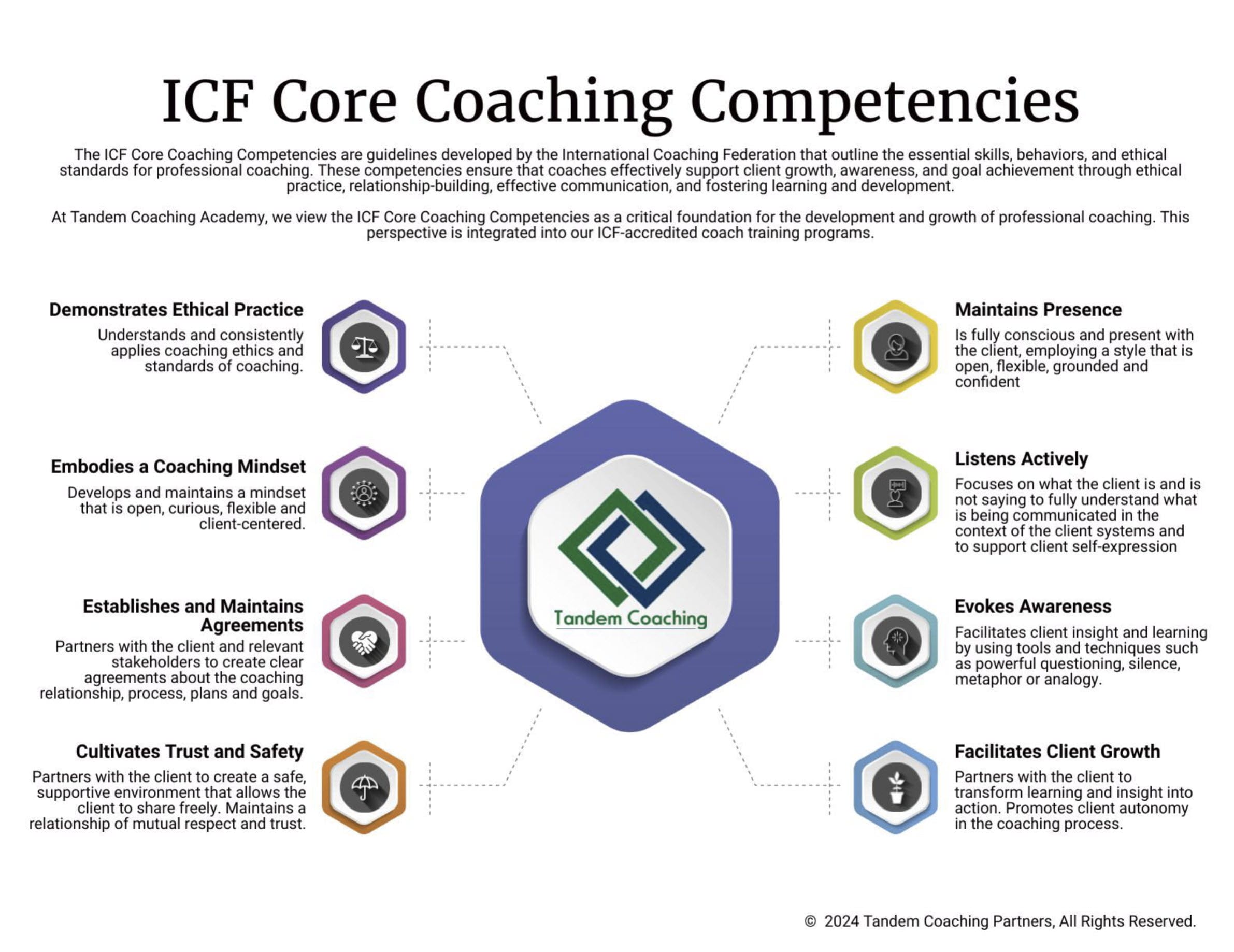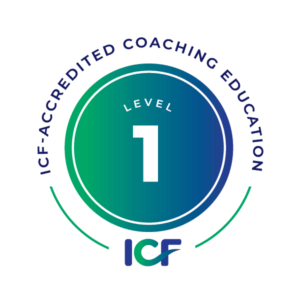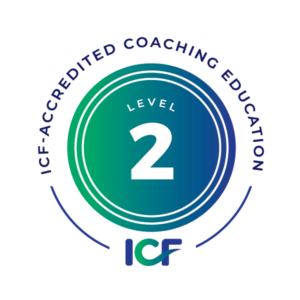Transformational coaching is an enlightening journey that propels clients toward significant personal and professional growth. At its core, this method leverages the strategic use of powerful questions to facilitate self-discovery, resilience, and actionable change. This approach goes beyond mere advice-giving; it is a collaborative partnership anchored in trust, deep listening, and the nuanced art of posing the right questions. In this comprehensive exploration, we delve into the essence of transformational coaching, the impact of potent questioning, and practical strategies for implementing transformative coaching questions effectively.
Why is it said that coaching can lead to transformation? The answer lies not in transforming individuals per se but in catalyzing a transformational process through insightful questioning. The dynamic between a coach and a client is founded on mutual trust—the coach’s belief in the client’s ability to find their own answers, and the client’s trust in the coach’s ability to guide and transform their perspective.
Understanding the Basics of Transformational Coaching
What Makes a Question Powerful in Coaching?
In the world of transformational coaching, the potency of a question lies not just in its formulation but in its ability to unlock new perspectives, drive self-exploration, and catalyze growth. Powerful questions form the cornerstone of effective coaching by fostering an environment where clients feel empowered to delve deep into their personal and professional challenges. These questions are intentionally designed to be direct and open-ended, offering the client a canvas as vast as their imagination, free from the confines of binary yes/no answers. This openness invites a rich tapestry of thoughts and feelings, encouraging clients to articulate and explore their inner landscape more fully.
The art of crafting such questions often begins with the probing ‘W’s: Who, What, Where, and Why. This strategic choice ensures that every question posed is deeply anchored in the client’s current reality and specific context, making each inquiry directly relevant to the individual’s journey. It is this relevance that guides the coaching conversation, ensuring that each question serves as a stepping stone towards greater self-awareness and insight. By prioritizing questions that resonate with the client’s experience, coaches can avoid making assumptions, a practice that can inadvertently lead the client towards a predetermined answer rather than one organically discovered through reflection.

Unlock Your Coaching Potential with Tandem!
Dive into the essence of effective coaching with our exclusive brochure, meticulously crafted to help you master the ICF Core Coaching Competencies. Tandem Coaching Academy offers a unique perspective that enriches these competencies, empowering you to elevate your coaching skills and achieve profound success. Sign up now to receive your detailed guide complete with insightful infographics that bring clarity and direction to your coaching journey.
Moreover, by steering clear of assumptions, coaches not only safeguard against bias but also cultivate a space of genuine curiosity and openness. This approach is foundational in transformational coaching, as it shifts the dynamic from one of problem-solving to one of exploration and discovery. Such an environment is ripe for moments of profound insight, where clients are able to connect with their thoughts and feelings in a way that is unfiltered and authentic. It is in these moments that the true power of coaching is realized, as clients uncover answers and solutions that are deeply aligned with their values and aspirations.
The emphasis on powerful questions underscores the transformational coach’s role not as an advisor but as a facilitator of personal and professional development. By asking the right questions at the right moment, coaches can guide their clients to uncover insights and make decisions that resonate with their deepest selves. This process not only aids in the immediate context of addressing challenges or setting goals but also equips clients with a reflective practice that can serve them long after the coaching relationship has concluded.
In essence, powerful questions are the lifeblood of a coaching session, serving as powerful tools that enable clients to explore their thoughts, feelings, and the multitude of possibilities that life offers. These questions encourage clients to envision a future unbounded by current limitations, to recognize their own agency, and to take the steps necessary for transformation. It’s this exploratory process, facilitated by carefully chosen, powerful questions, that lies at the heart of effective, transformational coaching, marking the journey of personal growth and achievement.
The Coaching Process: A Roadmap for Transformation
The coaching process is a structured journey that guides clients from their current reality to their envisioned future. It involves stages of exploration, insight, action, and reflection. Each stage is punctuated with questions designed to deepen understanding and promote action. Effective coaches enhance their practice by employing structured questioning techniques that are adaptable to the client’s changing needs and circumstances, thereby facilitating a transformative coaching experience.
Core Skills for the Transformational Coach
Mastering the Art of Asking Coaching Questions
In the realm of transformational coaching, the distinction between a good coach and a great one often hinges on the ability to pose powerful coaching questions. These are not just any questions, but ones meticulously designed to unlock a client’s full potential, challenging their current perceptions, and unveiling the underlying beliefs that shape their reality. A transformational coach wields these questions like a key, opening doors to new possibilities and pathways for their clients. It’s through this practice that coaches help clients navigate the journey of personal growth and professional development, enabling them to tap into their own reservoirs of insight and solution-finding.
Crafting such transformative questions requires a deep understanding of the art of questioning itself—a skill that goes beyond mere inquiry to becoming a powerful tool in the coaching toolkit. These questions are reflective, often asking clients to look inward at thoughts and feelings previously unexamined, and forward-looking, inviting them to envisage a future where they have achieved their goals. This delicate balance encourages clients to explore their present reality and future aspirations with equal vigor, fostering a coaching conversation that is both grounding and aspirational.
For a coach, the process of asking the right questions at the right moment is paramount. It’s about creating a safe space where clients feel empowered to express their thoughts and feelings openly, without fear of judgment or censure. In this space, questions that may seem simple on the surface—like “What do you want your life to look like?”—can lead to profound revelations and personal transformation. These open-ended questions serve as powerful tools, prompting clients to explore the breadth of their experiences and the depth of their aspirations.
Moreover, the practice of asking effective coaching questions is not a one-size-fits-all approach. Every client is unique, with their own set of challenges, goals, and perspectives. A transformational coach understands this and tailors their questions to fit the individual standing before them, guiding them through their personal and professional growth journeys. This customization is what makes coaching so powerful—by asking the right questions, coaches can help clients unlock their potential, achieve their goals, and realize their full potential.
ICF core competencies form the foundation of powerful coaching. Curious about building this strong foundation and embarking on the path to professional coaching? Our ICF ACC Level 1 coach training program gives you the skills and credentials to excel. Learn more about our program today.
In essence, the art of asking coaching questions lies at the heart of successful coaching. It’s a skill that, when mastered, can transform lives, facilitating growth and transformation in ways that clients may never have thought possible. Through this practice, coaches not only guide their clients toward achieving their goals but also play a crucial role in helping them face their current reality with courage and navigate their path to a brighter, more fulfilling future.
Developing Resilience and Maintaining Motivation in Clients
Questions that build resilience and sustain motivation are critical in helping clients navigate challenges and setbacks. These questions encourage clients to reflect on past successes, identify personal strengths, and develop strategies for maintaining progress toward their goals. By focusing on resilience-building questions, coaches can support clients in developing a mindset that views obstacles as opportunities for growth.
Advanced Strategies for Powerful Life Coaching Questions
Crafting Questions That Evoke Insight and Action
In the transformative journey of coaching, the essence of eliciting both insight and action from clients lies in the artful crafting of powerful questions. These are not merely inquiries; they are the catalysts for deep introspection and a call to action. A transformational coach understands the profound impact of questions that dive deep into the heart of the client’s experience, challenging them to explore beneath the surface of their initial responses. Such questions are designed to unlock the doors of perception, encouraging clients to reflect profoundly on their situations, desires, and the obstacles they face.
For example, rather than simply querying a client about desired changes, a more impactful approach involves probing the insights that have spurred the consideration of change. A question like, “What insight led you to consider this change, and how can it shape your actions moving forward?” serves multiple purposes. It prompts the client to reflect on the genesis of their desire for change, thereby acknowledging their capacity for self-awareness. Furthermore, it bridges the gap between insight and action, guiding the client to envision how this newfound understanding can translate into tangible steps towards their goals.
Unlock Exclusive Coaching Insights!
Enjoyed our insights on professional coaching? We’re just scratching the surface. Dive deeper into the world of transformative coaching with our exclusive offer. Sign up now to receive our FREE brochure: “Our Twelve Favorite Coaching Questions”—a curated collection of powerful questions designed to unlock potential, foster growth, and inspire action. Plus, you’ll gain access to a treasure trove of valuable coaching resources, tips, and strategies delivered straight to your inbox.
Tailoring Questions to Enhance Your Coaching Conversation
The efficacy of coaching questions significantly increases when they are custom-tailored to the client’s unique journey and the specific context of their life or career. This bespoke approach requires an in-depth understanding of the various coaching domains, whether it be life, executive, or career coaching, and an appreciation for the distinct challenges and opportunities each domain presents. A transformational life coach, for example, adeptly adapts their questioning to resonate with the individual standing before them, making each coaching session a unique exploration of the client’s inner and outer worlds.
In a career coaching context, a question such as, “What achievements in your career do you feel most proud of, and what do they reveal about your underlying values and motivations?” can unlock a wealth of insights about the client’s personal drivers and aspirations. It not only celebrates their past successes but also encourages a deeper understanding of the values that guide their professional life. Such questions are instrumental in aligning the client’s career trajectory with their personal values and motivations, thereby enhancing the relevance and impact of the coaching process.
Moreover, the strategic tailoring of questions allows coaches to navigate the client’s narrative, helping them to uncover and articulate their thoughts and feelings, explore their options, and commit to the path that feels most aligned with their authentic selves. This individualized approach fosters a powerful coaching relationship, one where the client feels deeply understood and supported in their journey towards personal and professional fulfillment.
In sum, the deployment of advanced questioning strategies in life coaching is a nuanced practice that demands a deep connection between coach and client, a keen understanding of the client’s world, and a commitment to crafting questions that challenge, inspire, and mobilize. Through this approach, transformational coaches not only facilitate significant personal and professional growth but also empower their clients to take control of their journey, making informed choices that lead to a more fulfilled and purpose-driven life.
Implementing Transformational Coaching Questions in Practice
Coaching Questions to Ask Your Clients for Maximum Impact
Implementing transformational coaching questions within your coaching practice or coaching business transcends mere conversation; it’s about strategically deploying questions that help, questions that guide, and questions that transform. Tailoring these powerful tools to the individual journey of each client ensures that every question asked is impactful, resonating deeply with the client’s personal and professional aspirations. This nuanced approach allows coaches to effectively assist their clients in navigating the complexities of their lives, encouraging a depth of exploration and self-discovery that is unparalleled.
From the outset of the coaching relationship, the right coaching questions can set the stage for a journey of meaningful change. These initial questions are foundational, helping clients to articulate “what do you want” and to confront the reality of where they are versus where they aspire to be. There’s no right or wrong answer, but rather an invitation to begin a dialogue that delves into the heart of the client’s desires and challenges. As transformation coaches like myself, Sai Blackbyrn, often find, it is this early phase of questioning that lays the groundwork for the powerful transformations to come.
As the coaching journey unfolds, the questions we ask evolve to further challenge the client, encouraging them to explore their thoughts and feelings, confront their assumptions, and consider new possibilities. These are the questions that coaches ask at the right time to spark a moment of insight or to propel the client towards taking decisive action. It’s about asking these questions with an intent to help your clients achieve breakthroughs, guiding them through the coaching process with a steady hand and a keen eye for the pivotal moments of opportunity for growth and transformation.
In any coaching style, whether it’s life coaching, executive coaching, or any of the myriad types of coaching, the power of the coach-and-client relationship is amplified by the coach’s ability to ask the right questions. Great coaching questions act as powerful tools that enable clients to open up, revealing their innermost hopes, fears, and ambitions. Through this exploratory process, clients find the clarity to define their goals and the courage to face their current reality, setting the stage for them to achieve their goals.
Ultimately, the job of a transformation coach is to elevate your coaching practice by leveraging the questions that help, questions that heal, and questions that catalyze change. By continuously refining our coaching tools and techniques, and by remaining attuned to the unique needs and rhythms of each client, we can guide our clients toward realizing their full potential. It is in the careful crafting and timing of these questions that we, as coaches, fulfill our mission to assist our clients, helping them to navigate their paths to personal and professional growth, and to create lives that truly reflect their deepest values and aspirations. Through this dedicated practice, we not only witness but also actively contribute to the powerful transformations that unfold within the coaching journey, affirming the transformative impact of our work in the dynamic world of coaching.
Are you eager to magnify the impact of your coaching practice? Our ICF Team Competencies program offers a seamless transition for those who have mastered the core competencies, allowing you to delve deeper into the complexities and rewards of team coaching. Explore this opportunity today.
Frequently Asked Questions in Transformational Coaching
The practice of transformational coaching is enriched by the use of powerful questions designed to facilitate deep reflection and meaningful action. Here, we delve into some frequently asked questions that exemplify the essence of powerful transformational coaching, illustrating how these inquiries can significantly impact the coaching journey.
“What do you want your life to look like?”
- This question encourages clients to envision their ideal future, prompting a deep dive into their desires and aspirations. It’s transformational because it shifts the focus from present challenges to future possibilities, helping the client to define clear, actionable goals.
“How can this situation serve as a stepping stone towards your goals?”
- By reframing challenges as opportunities, this question helps clients see value in adversity. It fosters resilience and a growth mindset, essential components in the journey towards personal and professional development.
“What values are most important to you in this context?”
- This inquiry assists clients in aligning their actions with their core values, ensuring decisions are congruent with their true selves. It’s a powerful tool for promoting authenticity and integrity in the client’s choices.
“How might your life change if you achieved this goal?”
- Encouraging clients to explore the impact of their goals, this question deepens their commitment and motivates action by highlighting the tangible benefits of their efforts.
“What’s holding you back from taking the next step?”
- By identifying obstacles, whether internal or external, this question allows the coach and the client to collaboratively explore strategies for overcoming barriers, enhancing the client’s agency and self-efficacy.
“Who in your life can support you in this endeavor?”
- This question underscores the importance of a support system, prompting clients to recognize and mobilize resources and relationships that can aid in their journey towards achieving their goals.
“How do you feel about the progress you’ve made so far?”
- Reflecting on progress helps clients appreciate their achievements and lessons learned along the way, fostering a sense of accomplishment and encouraging continued growth.
“What learning can you take from this experience to apply in the future?”
- This question emphasizes the value of experiential learning, guiding clients to extract wisdom from their experiences and apply it in future scenarios, thereby facilitating continuous improvement and adaptation.
“In what ways can you step out of your comfort zone to achieve your goals?”
- Encouraging clients to challenge themselves, this question promotes personal growth by pushing the boundaries of what they believe is possible, leading to transformative experiences.
“How can I, as your coach, support you more effectively?”
- This meta-question invites feedback on the coaching relationship itself, demonstrating the coach’s commitment to adapting their approach to best meet the client’s needs. It’s a testament to the collaborative nature of coaching, where both coach and client are active participants in the transformational process.
These questions exemplify the dynamic interplay between inquiry and action that lies at the heart of transformational coaching. By asking the right questions at the right time, coaches empower their clients to uncover insights, face their current reality with courage, and take decisive steps towards their envisioned future. Each question is a powerful tool in its own right, carefully chosen to guide the client through their personal and professional growth journey, ensuring that the coaching experience is not only about achieving goals but about fostering a profound and lasting transformation.
In the transformative world of coaching, the strategic use of questions is a cornerstone of fostering meaningful change and growth. As Sai Blackbyrn often highlights, questions are powerful tools that enable coaches to unlock their clients’ potential, guiding them through a journey of self-discovery and toward achieving their goals. The essence of transformational coaching lies in the coach’s ability to ask the right questions—those that not only get to the heart of the client’s desires and challenges but also empower the client to find their own path forward. By asking, “What do you want your life to look like?” coaches invite clients to envision their ideal future, thereby setting the stage for a coaching relationship that is deeply rooted in the client’s personal aspirations and values.
The job of helping your clients achieve their goals involves more than just setting targets; it’s about assisting your clients to explore their thoughts and feelings, thereby enabling them to uncover insights that lead to actionable change. Through questions like “How might achieving this goal change your life?” coaches assist clients in mapping out a path that aligns with their deepest desires. This approach not only aids clients in creating a life that resonates with their true selves but also ensures that the journey is as transformative as the destination. In essence, the ability to guide your clients with carefully crafted questions—and the wisdom to offer advice and guidance when necessary—embodies the powerful impact of coaching. It’s about empowering clients to create meaningful changes, ensuring they are equipped to face their current reality with resilience and navigate towards a future filled with achievement and fulfillment.







